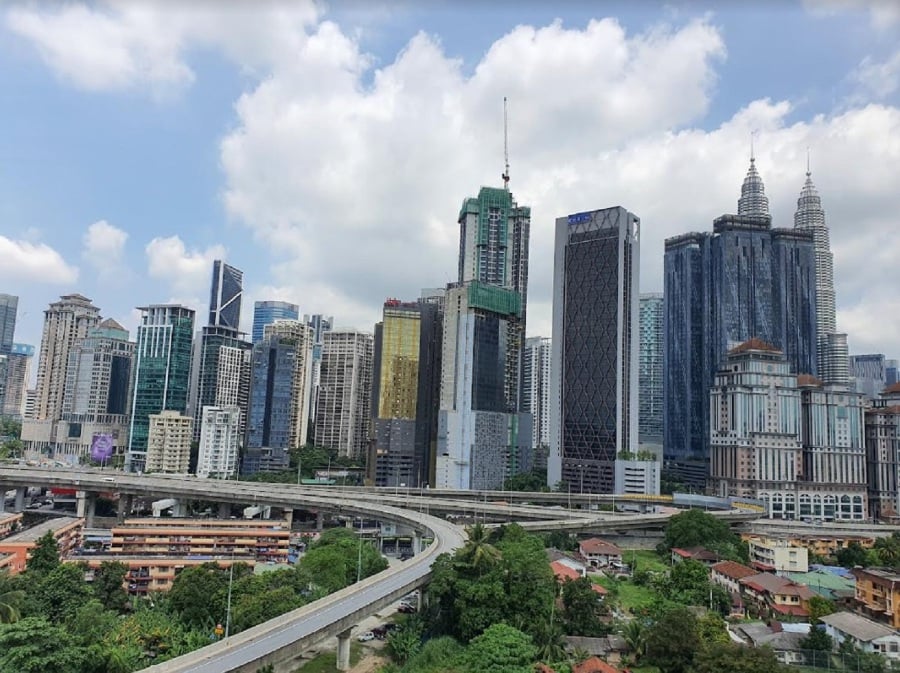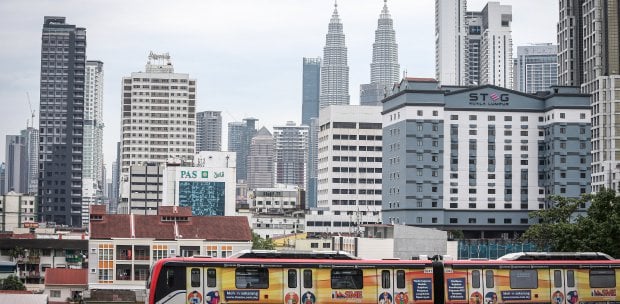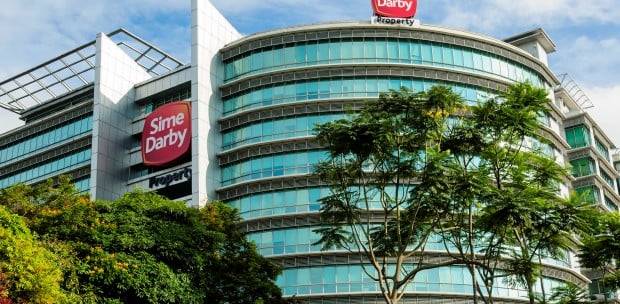KUALA LUMPUR: In this sequel to "A Display of Dynamism and Resilience," published in the July-Sep'20 edition, we explore the performance of selected Malaysian property developers from 2020 to 2022, including Q1 2023.
While not comprehensive, this analysis aims to highlight their performance, delving into financial positions, revenue growth, net profit ratios, and notable sales performance.
The Score Cards
Business for IOI Properties Bhd has been steady since our last report, recording a net profit ratio of 24 per cent in 2020, 26.7 per cent in 2021, and 26.6 per cent in 2022. This comes on the back of stronger revenues of RM2.1 billion in 2020, RM2.5 billion in 2021, and RM2.6 billion in 2022. Net profit also enjoyed a similar uptrend, from RM507 million in 2020 to RM663 million in 2021 and RM688 million in 2022.
In terms of the net profit ratio in Q1 2023, the developer recorded 12.4 per cent on the back of RM565 million in revenue and RM117 million in net profit.
Based on our past report, EcoWorld Development Group Bhd had its best showing of net profit ratio against revenue in 2019 (since 2015) at 8.26 per cent. An almost similar performance continued in 2020 (8.02 per cent) and 2021 (8.95 per cent) at a time when the intense fight against the pandemic was still ongoing. It was only in 2022 that it dipped to 7.69 per cent with RM2.04 billion in revenue and RM157 million in net profit.
Worthy to note is that although EcoWorld's revenue has been increasing since 2020 (RM2 billion in 2020 and RM2.04 billion in both 2021 and 2022), it is still below RM2.5 billion in 2019. But it goes without saying that performance from 2020 onwards was marred by a host of issues that also affected the entire market. The developer's sales from 2020 onwards were otherwise impressive, ie. RM2.3 billion in 2020 (15 per cent higher than the RM2 billion target), RM3.52 billion in 2021 (22.4 per cent above the RM2.88 billion target), and RM3.84 billion in 2022 (9.7 per cent exceeding the RM3.5 billion target).
UOA Development Bhd deserves a mention in terms of net profit ratio, as it registered 47.33 per cent in 2020, 41.71 per cent in 2021, and 49.32 per cent in 2022, among the highest in this report. Revenue, however, dropped from RM1.1 billion in 2019 to RM845 million in 2020, RM547 million in 2021, and RM452 million in 2022. Net profit also slowed from RM400 million in 2020 to RM228 million in 2021 and RM223 million in 2022.
The slide continued in Q1 2023 with a revenue of RM85 million and a net profit of RM47.2 million, generating a strong net profit ratio of 55.34 per cent. In the previous report, the developer recorded revenues in the region of RM1 billion annually from 2015 to 2019, attributed mainly to its ongoing developments in the market.
Business for OSK Holdings Bhd's property business fluctuated from 2020 to 2022 as it dropped from a revenue of RM703 million in 2020 to RM357 million in 2021 before increasing to RM539 million. Net profit was the strongest in 2020 at RM149 million, recording a net profit ratio of 21.2 per cent.
Performance among the larger players with footprints around Peninsular Malaysia was a little mixed, although most spotted increasing revenues from 2020 to 2022, such as SP Setia Bhd, Sime Darby Property Bhd, Mah Sing Bhd, and Sunway Property.
SP Setia went from RM3.9 billion in revenue in 2019 to RM3.2 billion in 2020 before picking up again to RM3.8 billion in 2021 and leaping further away to RM4.5 billion in 2022. Net profit also rose from a loss of RM245 million in 2020 to RM347 million in 2021 and RM364 million in 2022. The net profit ratio in the three years under observation was the best in 2021 at 9.2 per cent.
The developer's actual sales did not deviate far from its targets, with 2020 registering 0.6 per cent above target to record RM3.8 billion, followed by RM4.3 billion in 2021 (12.11 per cent above target) and RM4.1 billion (2.8 per cent above target).
Sime Darby Property Bhd, on the other hand, recorded RM3.2 billion in 2019, its highest since then, before dropping to RM2.1 billion in the pandemic-stricken 2020 and rising again to RM2.2 billion in 2021 and RM2.7 billion in 2022. Net profit, on the other hand, increased from a loss of RM516 million in 2020 to RM163 million in 2021 and to RM312 million in 2022.
From 2020 onwards, the net profit ratio was the highest in 2022 at 11.4 per cent. The promising momentum continued in Q1 2023 with a revenue of RM685 million and a net profit of RM61.2 million, recording a net profit ratio of 8.9 per cent.
In terms of sales, Sime Darby has consistently broken its target by a convincing margin. In 2020, its RM2 billion sales were in fact 42.9 per cent above the target of RM1.4 billion, whereas 2021's RM3 billion sales were 25 per cent above the RM2.4 billion target. In 2022, actual sales brought home RM3.7 billion, or 40.9 per cent higher than the modest RM2.6 billion target.
For Mah Sing Group Bhd, the pandemic was never quite a deterrent to its business from a big-picture perspective. Its 2019 revenue of RM1.8 billion only dipped for one year in 2020 to RM1.5 billion before levelling back in 2021 to RM1.8 billion and RM2.3 billion in 2022. Profitability registered a peak of 9.8 per cent in the net profit ratio in 2021.
Sunway Property's development business generated increasing revenue year-on-year, with RM528 million in 2020, RM691 million in 2021, and RM1.4 billion in 2022. Its net profit position, however, eroded from RM274 million in 2020 to RM122 million in 2021 and RM107 million in 2022.

The Verdict
Out of the 12 companies under observation, eight public listed property developers registered a year-on-year increase in revenue since 2020, and this presents a better picture than the previous report, where only three out of 21 companies experienced the same from 2015 to 2019.
By revenue, companies like Setia, Sime Darby, Mah Sing, and EcoWorld all had a better showing in 2019 when compared to the pandemic year of 2020. But it didn't take long to make a comeback, with some keeping pace as early as 2021.
The story is almost similar in terms of profitability, as six or half of the 12 companies enjoyed a consistent rise in net profit, which is also a better showing than the previous report's zero companies with increasing profits year after year.
The possibility of incremental profits year-on-year may be unrealistic for the seasonal nature of the property industry, more so in the post-pandemic era. Another glaring factor at play in the last few years is the rising construction costs in Malaysia. This has given property developers a new set of challenges to grapple with, especially those that have launched their projects into the market. Inadvertently, such pressures have eroded the developers' profit margins.
As property development is also a mid- to long-term game that is stronger than usual reliant on its most prized but scarce commodity, land banks, it makes the business more challenging when the market is shrouded in uncertainties and influenced by factors like the US-China trade war, the Russia-Ukraine war, geopolitical tensions around the world, rising inflation, a new government in Malaysia, and the changing market appetite for affordable properties. The list goes on.
But judging from this round of performance, it is representative that the market may be split between those that are consistently still able to launch properties and secure sales at any time of the season and those that need to revert back to the drawing board before the next release. Hence the varied financial performance of the different developers at different times and seasons. The good news is that despite the stifling lockdown periods, most property developers assessed in this report continued to record positive net profit positions. This is vital for the sustenance of the industry and, to a large extent, the wellbeing of the country's economy.
With the government having launched "Ekonomi Madani" on July 27, 2023, aimed at raising Malaysia's standing on the regional and global stage, a shot in the arm has also been introduced in the property sector. The initiative involves RM5 billion of financing guarantees from the government for up to 120 per cent of the property value for first-time house buyers buying homes worth up to RM300,000.
Other initiatives include a RM1 billion investment to support local start-ups and enabling the trading of smaller share lots and fractional shares to boost the domestic capital markets.
How fruitful these programmes will be remains to be seen, but with the objective of thrusting Malaysia into the Top 30 biggest economies in the world within 10 years, they should inject some zest back into the economy. - Henry Butcher, Malaysia





